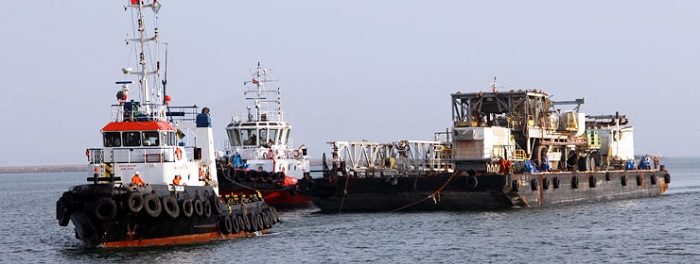
Muscat: An extensive environmental plan has been launched by Oman’s Special Economic Zone Authority of Duqm (SEZAD) to ensure that the environment in the fast-growing city of Duqm remains unspoilt, even as industrial development continues.
The plan involves legislation, the need for permits and monitoring by a special department which will make sure that that companies can practice their businesses while keeping Oman’s air sea, and land safe from environmental waste. This team will conduct both scheduled and surprise inspections, as well as collect samples of the environment near where the industries are set up and where they dispose of their waste, to ensure that little to no environmental degradation takes place.
Ahmed Al Baloushi, the department manager of the Environmental Regulatory Department at SEZAD, said: “Heavy industrial projects such as the petrochemical industries must first provide the authority with a study assessing the environmental and social impacts, conducted by an environmental consultant certified in the Sultanate, before the establishment of the project. This study will clarify whether the project has any adverse impact on the environment, it will identify and evaluate the possible risks and the procedures for dealing with any emergencies, and will determine the actions necessary to prevent, eliminate or control such adverse impacts.
He added: “This study includes all the mitigation measures that are necessary to protect the ecosystem (air, water and soil) pollution, including waste resulting from the industry. After the completion of the project and prior to the start of any commercial operation, the environmental control team of the Authority will verify that the project has met all the requirements set out in the environmental and social impact study. The final environmental permit is only granted after all the requirements are duly satisfied.”
Duqm is scheduled to become the centre of Oman’s non-oil future, with a number of factories and industries under the Sultanate’s Tanfeedh directives for economic growth currently under construction, while many more have been slotted in for the future. Tanfeedh encapsulates five major sectors of the economy, which were selected because they have a high potential for economic growth.
The five are tourism, agriculture and fisheries, energy and mining, transport and logistics, and manufacturing, but while economic expansion does continue, SEZAD plans to ensure that the environment does not suffer damage, so that natural ecosystems are not affected, and they can be enjoyed by future generations.
Al Baloushi said: “Projects are always required to comply with all environmental requirements and to establish a real partnership with the authority, to achieve the common objectives in protecting the environment from pollution. The level of commitment to the environmental requirements varies according to the awareness and interest of the project management in this aspect. Overall, we would like to express our satisfaction, with the level of commitment demonstrated by those in charge of the projects.”
Not all projects in Duqm must file the same level of certification for their permits, as that depends on the type of project being carried out. To ensure that companies were following the environmental standards set out by SEZAD, inspection teams made 121 visits to industries in 2018, and a further 66 in the first quarter of 2019.
Al Baloushi added: “Every project that involves a manufacturing process must obtain an environmental permit, but the procedures vary according to the category to which the project belongs. For example, the projects listed under the category of light industries need only to fill in the application form and. after studying the application, the environmental permit will be issued in a maximum of five working days, from the date of application.
He said: “We tend to classify the projects into three segments or categories for the purpose of determining the environmental requirements for economic activity in the zone, based on the location. Quality of environment and life is a central point of the authority’s attention. There are, for example, strict environmental controls on petrochemical projects for the preservation of environments, materials used in production, production capacity, and level of impact on the environment.”
Mahmood Al Rawahi, the general manager for the Compliance and Enforcement Department at SEZAD, said: “Environmental protection in such large projects can be good - not just for the environment - but it can also be economically viable. In the past it was largely thought that environmental protection limits economic development, but this notion has begun to change recently, due to the change in trends and policies supporting environmental protection and the adoption of the comprehensive and sustainable development concept.”
According to him, his department has begun asking companies to submit Environmental and Social Impact Assessment studies (ESIA), which deal with the impact that the industries set up by that particular company will have on the environment. “An ESIA study is required for projects with major environmental impacts. ESIA studies have to be conducted by an approved environmental consultancy to determine whether the project or work area of the project has any adverse effects on the environment and will also include the measures that address any adverse impacts and how to mitigate them.”
Companies can face penalties that are seen not as a punishment for infractions, but rather as a tool to deter them in the first place.
“Penalties are the disciplinary actions taken by the Authority management against the violations that are detected,” explained Al Rawahi. “Penalties vary according to the gravity and repetition of the offence. As we said earlier, the goal is not in detecting an offence, but rather this penalty is taken as one of the disciplinary tools that contribute to the enhancement of the supervisory level in the Zone.